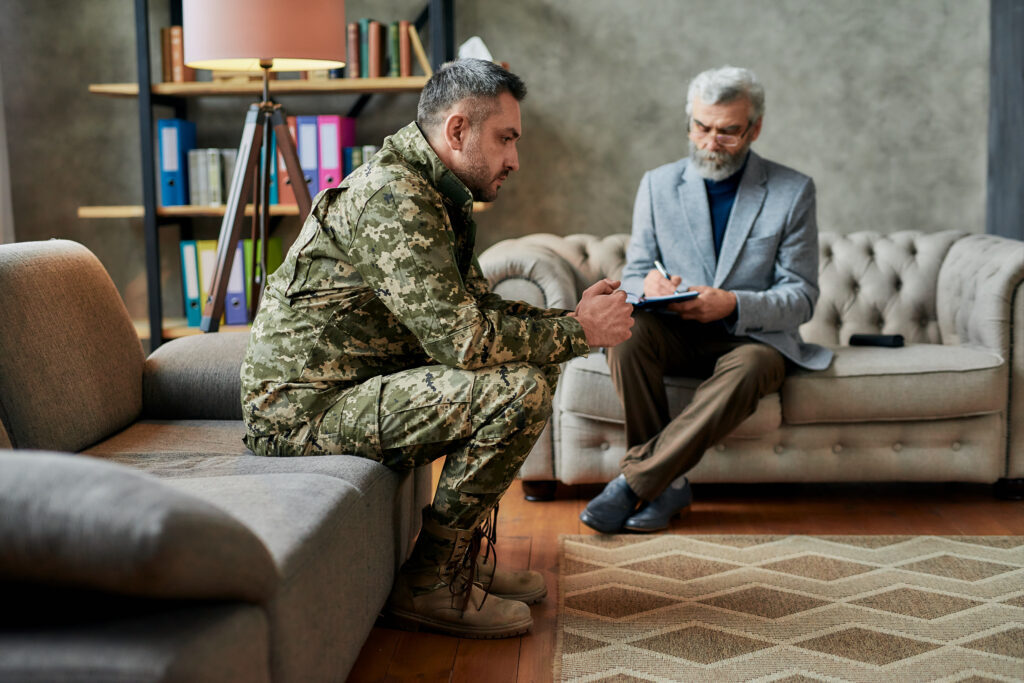1. One in 10 veterans suffer from a substance use disorder.
You may be surprised to learn that one in ten veterans suffer from alcoholism or substance misuse. This statistic is important due to several reasons:
- Veterans are exposed to intense environments and severe trauma which often leads to mental health disorders.
- Moreover, veterans grapple with chronic pain, often leading to dependency on addictive opioid painkillers.
- Lack of social support and difficulties in readjusting to civilian life post-service exacerbate feelings of isolation, depression, and substance use.
- The struggle to find suitable employment aggravates their hardships, increasing their susceptibility to substance use.
2. Veterans are twice as likely to develop an addiction compared to civilians.
Veterans, those brave servicemembers who’ve served us, face an uphill battle when transitioning back to civilian life. It’s shocking but true, they’re twice as likely as you and me to develop an addiction. Why?
- Combat stress: Intense experiences can lead them to seek escape or relief in illicit substances.
- Younger veterans: They often lack the tools to effectively cope with stress, making them prone to drug addiction.
- Mental health struggles: PTSD, depression, and anxiety disorders are prevalent among veterans.
- Chronic pain: Injuries from their service time can lead to substance abuse.
- The culture of silence: This keeps many from seeking help for their problems early on.
3. 30% of veterans seeking treatment for any condition are also seeking treatment for addiction.
Here’s a sobering fact: 30% of veterans seeking treatment for any condition are also seeking help for addiction. Why the staggering statistic?
- Many veterans grapple with co-morbid disorders, meaning they have more than one mental health issue going on. PTSD, depression, and addiction often go hand-in-hand.
- Traumatic events, such as witnessing a comrade’s death or surviving a violent attack, can trigger substance abuse. The substances are typically used as a form of self-medication.
- Frustratingly, only about half of those who need mental health treatment actually seek it, and even fewer receive adequate care.
4. 40% of veterans who are homeless suffer from a drug or alcohol addiction.
- 40% of homeless veterans struggle with either alcohol or drug addiction.
- This high percentage suggests that substance use disorder is remarkably prevalent among veterans who fall into homelessness.
- It’s significant because it highlights the intense adversity homeless veterans face, with overcoming addiction being a key part of their journey towards improved living conditions.
- Substance abuse among homeless veterans is often a dual issue, functioning both as a cause and a consequence of their homelessness.
- The severity of this statistic emphasizes the urgent need for addiction intervention and effective treatment programs for homeless veterans.
5. 20% of veterans who died by suicide suffered from an addiction.
It’s alarmingly true that 20% of veteran suicides are preceded by substance abuse. You might wonder why these figures are so concerning. Here’s why:
- These veterans are struggling not just with addiction but with underlying mental health issues, like untreated PTSD.
- Experiencing war can trigger heavy drinking or drug abuse to manage stress and trauma. In fact, vets with high levels of combat exposure are likely to drink heavily (26.8%).
- The risk of suicide is doubled when a veteran is living with a substance use disorder, especially for women or those abusing prescription medicines.
- This addiction pattern is critical in the military as well, where substance abuse often precedes suicidal behavior. It’s a pressing issue that needs addressing urgently.
- It’s deeply concerning to know that 20% of veterans who take their own lives are struggling with an addiction. Simply put, this highlights a direct link between substance abuse and suicide rates among veterans.
- This issue is not something to brush off. Substance misuse can aggravate mental health issues, often pre-existing in the military population, leading to tragic consequences.
- It’s evident that an urgent need exists to ramp up prevention measures and support systems for veterans.
- From these data, we see that addiction doesn’t just harm the individual’s health but can sadly, and all too often, end in suicide. Veterans with addictions are therefore a profoundly at-risk group that requires our immediate attention and assistance.
6. Opioid overdose rates among veterans are twice as high as civilian rates.
As a veteran, it’s critical to know that opioid overdose rates among veterans have seen a shocking rise, shooting up from 14% in 2010 to 21% in 2016. Notably, these stats are twice as high as civilian rates. Veterans’ risks stem from different factors:
- Veterans often deal with unique pain-management problems; two-thirds of them report experiencing pain.
- Overuse of opioid pain relievers often leads to accidental overdose, notably higher in veterans at 9%, as compared to 6.4% in non-veterans.
- Struggles with substance abuse disorders or mental health conditions make veterans almost three times more likely to receive higher doses of opioid meds.
- Upon leaving active service, illicit drug use often increases, including substances like marijuana, psychotherapeutic drugs, cocaine and opioids.
Factors Contributing to Substance Use Disorder Among Military Veterans
1. Post-Traumatic Stress Disorder
Post-Traumatic Stress Disorder (PTSD) is a mental health condition that you can develop after witnessing or experiencing a traumatic event. Can you imagine the pain of a combat veteran reliving horrendous events on the battlefield? Here’s how PTSD can push our veterans towards substance use:
- Unwanted recurring flashbacks or nightmares of the traumatic event can cause severe anxiety. To cope with this constant fear, you might turn to drugs or alcohol.
- PTSD can lead to intense feelings of guilt, shame, and isolation, creating a strong desire to numb these feelings and leading to substance use.
- Lastly, PTSD can trigger self-destructive behaviors, including misuse of substances. With all these stressors, you would look for relief where you can find it.
This dangerous cycle often results in a Substance Use Disorder for many veterans. Remember, help is available and you’re not alone.
2. Alcohol and Drug Misuse Disorders
Substance use disorders, marked by a distressing and harmful pattern of drug or alcohol use, are surprisingly common among military veterans. Wondering why? Let’s break it down for you:
- Oftentimes, heavy, binge drinking becomes a cultural norm for dealing with stress, recreation, and socializing in military life.
- Interestingly, veterans tend to consume alcohol and engage in heavy drinking more than their non-veteran peers.
- The risky habit of engaging in substance abuse in potentially dangerous situations can be traced back to combat exposure.
- The misuse of prescription drugs, particularly opioids, is escalating, especially among veterans suffering from chronic pain or mental health issues.

3. Mental Health Disorders
Mental health disorders represent a wide range of conditions that affect a person’s behavior, mood, and thinking. In some cases, these disorders can contribute to or exacerbate substance use disorder, especially among military veterans.
- Post-Traumatic Stress Disorder (PTSD): Combat experiences can lead to this disorder, which often leads to self-medicating with substances.
- Anxiety Disorders: Veterans grappling with constant anxiety might turn to substances for relief.
- Attention Deficit Hyperactivity Disorder (ADHD): Difficulty in focusing or controlling impulses may result in substance misuse.
- Bipolar Disorder: During depressive or manic phases, veterans might use substances to cope.
- Depression: Veterans might use drugs or alcohol in attempts to alleviate feelings of sadness or hopelessness.
- Eating Disorders: Substance misuse can co-occur with eating disorders, often as a means of control.
- Obsessive-Compulsive Disorder (OCD): Compulsions or obsessions can become overwhelming, leading to substance use as a coping mechanism.
- Schizophrenia: This severe disorder often comes with substance misuse, especially tobacco.
- Personality Disorders: These enduring patterns of thinking and behavior can make it difficult for veterans to adjust to civilian life, leading to substance misuse.
4. Limited Access to Care
You might be surprised to learn that only half of veterans who require mental health treatment actually seek it. Even among those, only 50% receive sufficient care. For those in rural areas, secure access to vital services becomes a tough challenge. Here’s an example,
- There are about 3.4 million rural veterans. Access to necessary mental health services is a struggle for them.
- Limited access contributes to risks, particularly in sustaining substance use disorders.
- For instance, TMH or telemental health could boost the quality of life for rural veterans. A study showed successful use of TMH in preventing relapse in veterans with alcohol use disorder.
Treatment and Recovery Options for Military Veterans with Substance Use Disorder
1. Treatment Programs for Addiction
Substance use disorder can be a distressing hurdle for military veterans, but there’s hope. A trove of effective treatment programs are ready to assist you. Here are the top ones:
- Medical Detox
- Inpatient Treatment
- Outpatient Treatment
- Cognitive Behavioral Therapy
2. Counseling Services
Counseling services are professional guidance methodologies designed to help individuals manage personal, social, or psychological problems. For military veterans struggling with Substance Use Disorder, these sessions can be pivotal. They provide:
- A safe space to discuss traumatic experiences, supported by trained professionals.
- Development of coping strategies and techniques for difficult memories.
- Assistance in transitioning to civilian life with specific programs provided by each branch of service, including the Army and Navy.
- Access to multiple resources such as the National Suicide Prevention Lifelines and VA Resources.
- Mental health treatment options within the VA health system for over 1.1 million patients.
Counseling isn’t just therapeutic; it’s a pathway to recovery.
3. Buprenorphine
Buprenorphine, an FDA-approved Medication Assisted Treatment (MAT), aids in the management of substance use disorders in Military Veterans.
- It helps curb withdrawal symptoms and cravings.
- It’s less addictive than full opioids.
- It can be administered in multiple settings.
How to Support Veterans Struggling with Substance Use Disorder.
Step 1: Understand the Reality of Substance Use Disorder Among Military Veterans
Substance use disorders (SUDs) can significantly impact military veterans. Several factors contribute to these disorders, including:
- Exposure to trauma and combat, leading to mental health disorders.
- Co-occurring mental health disorders prompting self-medication with drugs or alcohol.
- Chronic pain causing overuse of addictive opioid painkillers.
- Social isolation and adjustment challenges after service.
- Economic hardships.
Veterans often face these risks, driving high substance use rates within the population. Stats show that after Iraq and Afghanistan wars, 1 in 10 returning veterans had alcohol problems. Over 80% of veterans with SUDs misuse alcohol, 27% misuse illegal drugs, and 7% misuse both. Understanding and acknowledging these facts is crucial to addressing the issue.
Step 2: Reach out to your veteran family members for support
- First, be there for them, providing a listening ear. Veterans often struggle with mental health disorders, feeling isolated and hopeless. Your presence can make a big difference.
- Second, educate yourself about PTSD and substance abuse in veterans. This understanding can help you provide meaningful support.
- Third, encourage medical treatment. There are numerous substance abuse programs for veterans. Assisting them in getting the right help is crucial.
- Fourth, if your loved one isolates themselves emotionally due to PTSD, consider seeking counseling. This can aid in bridging the emotional divide.
- Lastly, if an immediate crisis ensues, reach out to the Veterans Crisis Line by calling 988 and pressing 1 or texting 838255.
Step 3: Provide treatment options for your veteran
As a resource for aiding veterans struggling with substance use disorder, it’s key to be prepared with a range of effective treatment options. Here is a brief guide:
- Begin with Medical Detox, providing medication-assisted treatment to alleviate symptoms of withdrawal from opioids, benzodiazepines, or alcohol.
- Consider Inpatient Treatment for those in need of a residential setting, ensuring constant care and support.
- Alternatively, recommend Outpatient Treatment, allowing the veterans to continue treatment while living at home.
- Offer Cognitive Behavioral Therapy as a form of mental health treatment.
- Remember the Department of Veterans Affairs (VA) health care as a primary resource, providing a variety of therapeutic support, including one-on-one counseling, PTSD treatments and family counseling.
Step 4: Help your veteran navigate the healthcare system
Veterans often face obstacles in transitioning to civilian life. One struggle, often unnoticed, is the overwhelming number of daily life choices and decisions. This, combined with potential unemployment, can lead some to use substances as a coping mechanism.
Steps to assist a veteran struggling with a Substance Use Disorder:
- Learn about veteran substance abuse and PTSD. Gain knowledge about these conditions to understand their challenges.
- Provide emotional support. Be a listening ear, making them feel they are not alone.
- Encourage treatment. Guide them towards seeking professional help, reassuring them about the existence and efficiency of veteran substance abuse programs.
- Encourage use of self-help Apps. These provide education and support after trauma.
- Most importantly, engage without judgment. Often, showing your care can be the first step towards their recovery.
Step 6: Connect with other veterans online
- Start by exploring the website veterans.smokefree.gov. Here, you’ll find a wide array of free resources and tools specifically designed to aid veterans battling Substance Use Disorder.
- Sign up for apps offering self-help, education, and trauma support, fostering a sense of community among veterans.
- Regularly engage with veterans on social media, providing a ready-made network of support and understanding during challenging times.
- Remember to maintain respect and empathy when communicating online. Your shared experiences can be a powerful tool for healing. Listen first, then offer insights gently.
- Joining these online communities can considerably enrich your journey towards recovery. Regular interaction and mutual support among peers can be a vital step in overcoming Substance Use Disorder.
- Start by downloading self-help and educational apps available for veteran support after trauma.
- Join social media communities specifically created for veterans. On these platforms, share your experiences and listen to others.
- Also consider checking out https://veterans.smokefree.gov/ for free resources and guidance on dealing with Substance Use Disorder.
- Lastly, don’t hesitate to ask for help if you’re feeling anxious or troubled. You can reach out to the Veterans Crisis Line by dialing 988 and pressing 1.
Remember, connecting with others who share similar experiences can greatly help you feel less isolated and provide emotional support.


